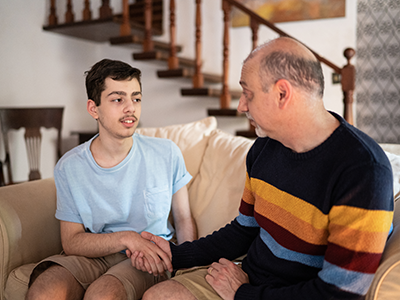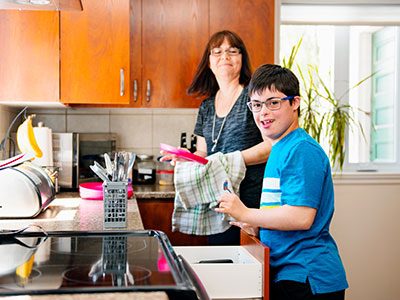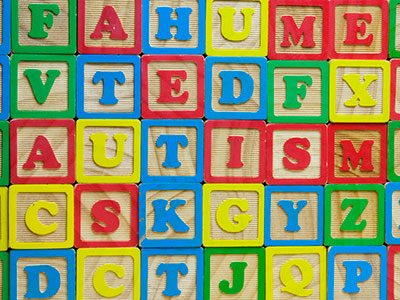Who wants to make a mistake? This is the question I asked myself when I thought about what topic might feel helpful to families as we start the school year and turn our attention to the months ahead. We all want to do things correctly – and help our children learn to do things correctly as well! Your kids may feel worried about grades or meeting new people. People with autism often feel worried and anxious about change and these feelings can be increased when they are worried about making mistakes. Strange as it might seem, learning to embrace mistakes can be the basis for developing the emotional health of Autistic young people. We hope to share ideas on how to help your child to be okay with making mistakes!
I am forever thankful for my son’s second grade teacher who posted signs in her classroom with the message, “If you’re not making mistakes, you’re not learning.” We want our kids to do their best and learn all that they can. Kids come into the world curious, looking to learn new things as parents cheer them on. They start school wanting to learn and get all the right answers – but they will make mistakes. Mistakes are an important part of learning, but some kids feel they must be perfect. They think mistakes means they are “dumb” or “stupid.” They need help to focus on how to learn from their mistakes, so they don’t give up. This helps them rewrite the story they tell themselves about what making a mistake means. Here are strategies to support them:
- Share your own mistakes! Point out the mistakes you make in your daily life. Talk about your frustration with your mistakes and what you learned – and what you will do different next time. (“What a mess! I won’t forget to put the cat out when I leave.” “Next time I will make a list before I go to the grocery store, so I don’t forget something.”)
- Focus on effort, not just results. Help your child establish a schedule to work on schoolwork, with brief breaks. One suggestion is 10 minutes/school year but talk to your child’s teacher. Support your child to actively work during that time and allow them to stop when the timer finishes. Praise their hard work. Let their teacher know the schedule and why work may not be completed so your child is not punished. If your child cannot complete assignments during that time, they may need more support at school.
- Make learning fun whenever possible. This may be easier for younger kids, such as adding up the numbers on dice when playing a game to practice math or making up fun sentences for spelling words. Older kids may enjoy challenging you to solve complicated math problems or quiz you on science/social studies facts. Enjoy learning from your mistakes with them!
- Help your child figure out how to correct their mistakes so they don’t repeat them. Focus on helping them learn from their mistakes instead of how many mistakes they make. Maybe they need to learn a strategy to check their work or maybe they did not understand the assignment – or maybe it’s a little of both. Work with your child to solve problems and plan on what to do different next time.
- Help your child feel okay talking to you about mistakes so they don’t hide them. You may be anxious or worried when your child is struggling with a subject. Let them know you see how hard they are working and talk to them about what may help. Contact their teacher (or help them talk to their teacher) to get help in the classroom.
 https://riseandshine.childrensnational.org/wp-content/uploads/2022/05/Father-and-son-talking-at-home-feature.png
300
400
Rise and Shine
https://riseandshine.childrensnational.org/wp-content/uploads/2017/11/childrens_riseandshine_logo.jpg
Rise and Shine2026-02-02 01:12:352026-02-02 15:21:38Talking to your child about their autism diagnosis
https://riseandshine.childrensnational.org/wp-content/uploads/2022/05/Father-and-son-talking-at-home-feature.png
300
400
Rise and Shine
https://riseandshine.childrensnational.org/wp-content/uploads/2017/11/childrens_riseandshine_logo.jpg
Rise and Shine2026-02-02 01:12:352026-02-02 15:21:38Talking to your child about their autism diagnosis






















Leave a Comment
Want to join the discussion?Feel free to contribute!